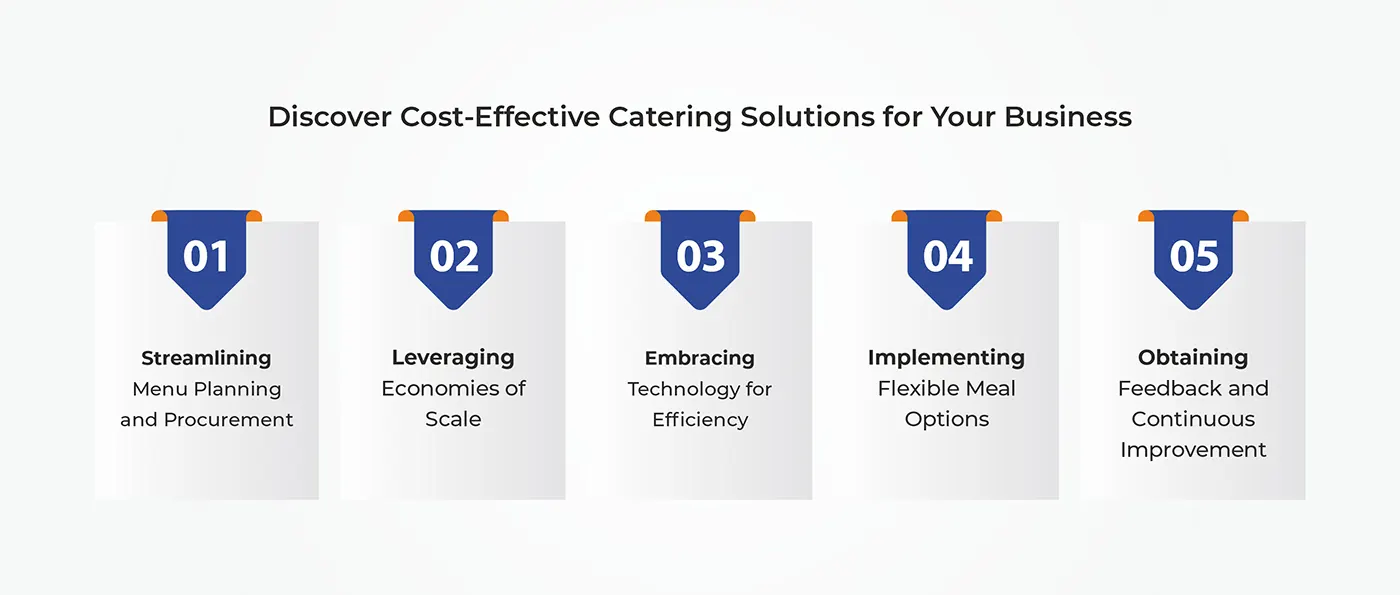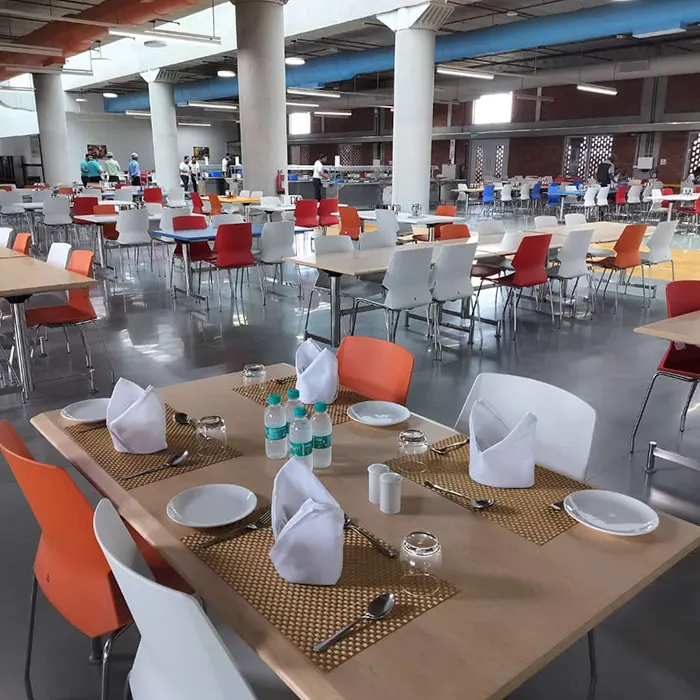In the fast-paced world of industrial business operations, providing quality meals for your workforce can be a challenging task. The significance of a well-fed team cannot be overstated; it directly impacts productivity, morale, and overall performance. However, achieving this goal while maintaining cost-effectiveness requires strategic planning and innovative solutions.
Industrial catering services involve serving meals to large groups in diverse settings, such as manufacturing plants, construction sites, or corporate campuses. Implementing cost-effective catering solutions demands a blend of creativity, efficiency, and attention to the specific needs of the workforce.


Streamlining Menu Planning and Procurement
One of the primary cost-saving strategies for industrial catering is optimizing menu planning and procurement. Tailoring menus to maximize the use of seasonal, locally-sourced, or bulk-purchased ingredients can significantly reduce expenses. Collaborating with suppliers to negotiate favourable pricing for staple items can also yield cost savings. Additionally, employing standardized recipes and portion control measures helps in reducing food wastage, thereby cutting down on unnecessary expenses. Utilizing inventory management systems assists in tracking ingredients, preventing over-ordering, and minimizing spoilage.
Leveraging Economies of Scale
Catering for a large workforce offers the advantage of economies of scale. By catering to a significant number of individuals, businesses can negotiate better deals with suppliers, acquire bulk discounts, and streamline production processes. Moreover, consolidating meal preparation and service to fewer shifts or specific hours can optimize kitchen operations and reduce overhead costs.
Embracing Technology for Efficiency
Integration of technology into catering operations can significantly enhance efficiency and cost-effectiveness. Utilizing catering management software for meal planning, inventory tracking, and procurement streamlines processes and reduces the margin of error. Additionally, adopting automated systems for tasks like ordering, invoicing, and payment processing can save time and minimize administrative costs.
Implementing Flexible Meal Options
Offering diverse but cost-effective meal options is crucial. Incorporating balanced and nutritious meals doesn’t have to come at an exorbitant cost. By creatively blending affordable ingredients, businesses can offer varied menus while ensuring nutritional value. Providing options for different dietary requirements can also improve employee satisfaction and productivity.
Employee Feedback and Continuous Improvement
Regularly seeking feedback from employees regarding meal preferences, portion sizes, and overall satisfaction is crucial. This information can guide adjustments in menu planning and service delivery, ensuring that resources are allocated efficiently and effectively. Continuous improvement based on feedback and market trends is essential for long-term cost-effectiveness. Staying updated with the latest innovations, trends, and cost-saving strategies in the catering industry can help businesses adapt and optimize their catering solutions.
Conclusion
In conclusion, cost-effective catering services in India require a blend of strategic planning, efficient operations, technological integration, and a focus on employee satisfaction. By implementing these strategies, businesses can provide quality meals for their workforce without compromising on financial prudence, ultimately fostering a healthier and more productive work environment.
We at FFS, aim to help our industrial clients to enhance their dining experience with good quality food and refreshment services within a budget they have. To expand your menu with fresh & hygienic options and healthy meals, contact us today!

